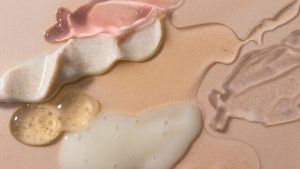
Scientific research is increasingly focusing on the relationship between diet and skin. The nutrients found in foods can have both a positive or negative impact on the appearance and health of our skin. A healthy diet can promote clear, youthful skin, whereas poor dietary choices may contribute to skin conditions and the premature ageing of the skin.
Diet is the primary source of energy and nutrients for the body, and these habits, or preferences for food or drink, are an important aspect of life that are influenced by historical, cultural, and religious factors. The seven nutrient classes can be divided into macronutrients, which are nutrients required in large quantities, and micronutrients, nutrients required in small quantities. Macronutrients include water, carbohydrates, fibre, fats, and protein, while micronutrients are vitamins and minerals. Collectively, both macro and micronutrients are required for the skin to protect the body from external aggressions.
Carbohydrates
It is increasingly accepted that there may be an association between sugar and some food processing methods such as frying and baking with ageing skin, with the mechanisms linked to skin advanced glycation end products (AGE’s). A high-sugar diet, ultraviolet irradiation, and eating barbecued fried foods contribute to the accumulation of AGE’s and acceleration of ageing skin. Furthermore, high-salt, spicy, and vegan diets can have a detrimental effect to long-term skin health. Therefore, scientific, reasonable, healthy, and diverse eating habits and eating some antioxidant-rich foods are essential to maintaining skin health. Carbohydrates should generally account for 45-55% of total energy intake.
Proteins
Proteins form an important part of body tissues and organs. Their primary physiological functions are to build and repair tissues, mediate physiological functions, and provide energy. All tissue cells in the body are constantly renewed, and only sufficient protein intake can maintain normal tissue renewal and repair within the skin’s renewal cycle of 28 days. Protein deficiency or excessive intake can cause metabolic disorders and affect physical health. Protein deficiency can cause issues such as brittle hair, dry or flaky skin, nail changes, and impeding the healing process of wounds. Proteins should typically account for 10-15% of total energy intake.
Fats
Obesity, diabetes, fatty liver, and ageing skin are all associated with a high-fat diet. High-fat diets slow the healing of the skin by increasing oxidative stress and inflammatory responses, reducing protein synthesis. Fats should consist of 30-35% of total energy intake.
Fibres
A high-fibre diet can bind and eliminate toxins from your body, improving the health and appearance of your skin. Fibre acts as a prebiotic, feeding the good bacteria in the gut and promoting a healthy gut-skin axis, lowering the risk of skin problems. Fibre has anti-inflammatory properties that can help reduce inflammation in the skin while also improving its overall health and appearance. An adequate intake of fibre is considered between 25-30g per day.
Vitamins
Vitamin deficiencies have an impact on skin health. The lack of vitamins in the body can cause skin disorders. For example, lack of vitamin C causes the symptoms of scurvy such as fragile skin and impaired wound healing. Vitamins, as skin antioxidant defence ingredients, are primarily obtained from food; thus the content of vitamins in the diet is closely related to skin antioxidant capacity and physiological functions.
Minerals
Trace elements include iron, iodine, zinc, and copper and refer to elements which make up less than 0.01-0.005% of the human body’s mass. Despite their low abundance in the body, trace elements have significant physiological and biochemical effects. Trace elements are closely associated with skin immunity and inflammation.
Water
Water is a vital component of the body, helping to maintain balance and tissue function. Water in the body and cells primarily serves as a nutrient, solvent, and transportation carrier, while also maintaining body volume and regulating body temperature. A lack of water in the body can cause tissue dehydration and functional disorders such as ageing and inflammation. Drinking 2l of water per day improves skin physiology and promotes superficial and deep hydration.
In Conclusion
The consensus is that diet may have a significant impact on skin health. By incorporating a diet rich in healthy fats, antioxidants, and essential vitamins and minerals, the skin could serve as a mirror to reflect overall health, and it is anticipated that in the coming years, it will become clearer how diet affects its vitality and resilience.










